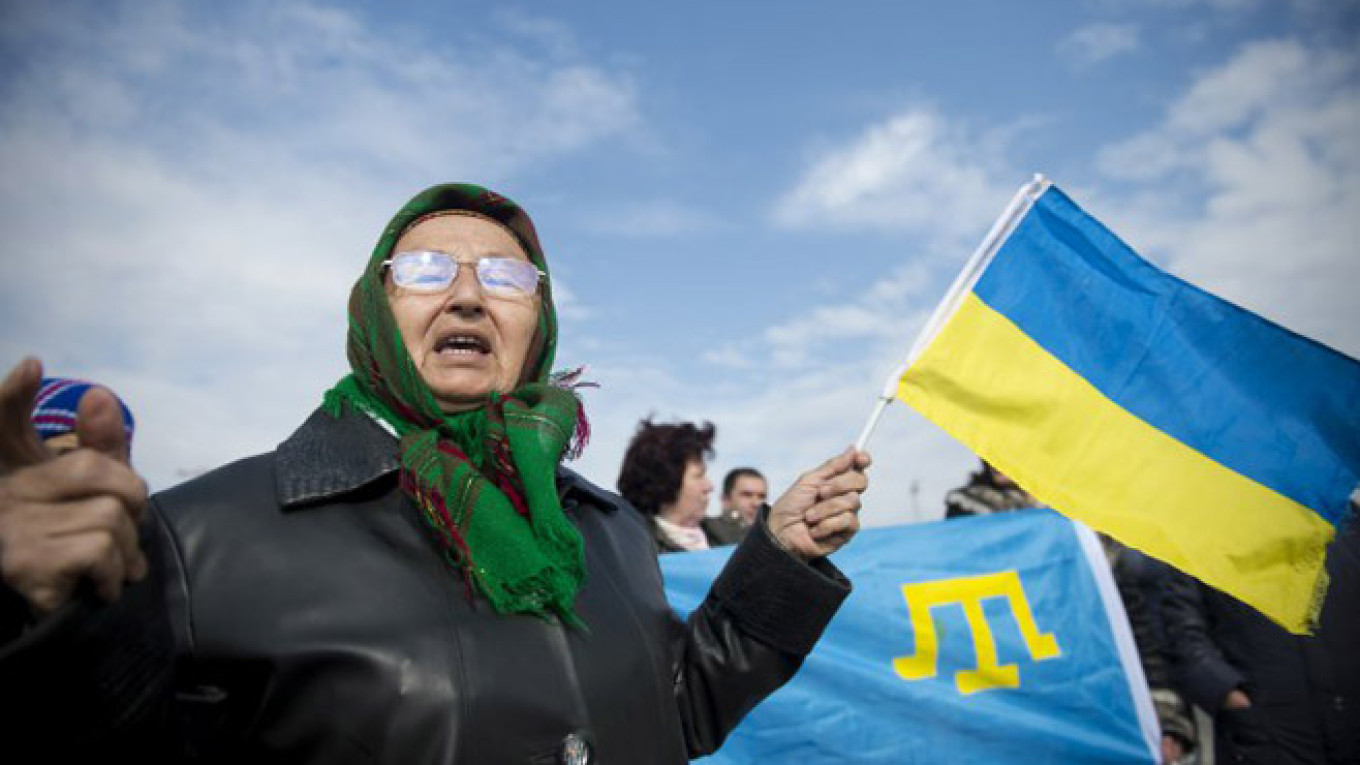At a recent conference devoted to Crimea's Tatar population, local officials urged members of the ethnic minority to exercise their rights to vote in upcoming elections, while representatives of the group were forbidden from expressing their own views.
Lofty Promises 'On the State of Crimean Tatars'
Members of the Mejlis, the Crimean Tatars' highest executive body, claimed that the conference — titled "On the State of Crimean Tatars in Today's Crimea" — was little more than a ploy to gain pre-election popularity points among under-represented voters. ?
At the conference, Crimean leader Sergei Aksyonov called on members of the community to get more involved in the peninsula's political life, and to participate in the upcoming Sept. 14 elections.
He then promised to allocate 10.8 billion ruble ($300,000) to the group, in accordance with the peninsula's 2020 development plan, Kommersant reported.
"Even today, 450 million rubles of the 800 million planned for this year have been allocated from the state budget to improve the living conditions of those previously deported. This money will go toward, say, gas infrastructure development," Aksyonov was cited as saying by Kommersant.
Aksyonov noted that of 263 Crimean Tatar villages, fewer than 100 are currently equipped with proper gas infrastructure.
The Crimean leader also promised to revamp several mosques, a move geared toward the primarily Muslim group. And Oleg Belaventsev, the presidential envoy to the Crimean Federal District, said Crimean Tatars would soon be ensured representation within the regional government.
'Empty Promises to Lure Voters'
Members of the Crimean Tatar community slammed Aksyonov and Belaventsev's statements as empty promises, however, chalking it all up to an attempt to lend the elections an appearance of legitimacy.
Deputy chairman of the Mejlis Nariman Dzhelyalov said in comments to Kommersant that the Crimean authorities "promise a lot to the Crimean Tatars but do very little."
"They're trying to rope our people into the voting offices with various promises," Dzhelyalov was cited as saying.
According to the Mejlis, about 20-30 percent of Crimean Tatars plan to go to polling stations on elections day, though not all of them intend to vote.
"Many of them plan to go to voting stations just to ruin the ballots," Dzhelyalov said.
In early June, the Mejlis banned members of the ethnic minority from participating in the peninsula's elections, which the group considers to be illegitimate in light of what they see as Russia's illegal annexation of Crimea.
Members of the group have warned of discrimination ever since the annexation of Crimea in March, and two of the Mejlis leaders have been banned from the peninsula in what they say is an attempt to suppress the ethnic minority. Officially, prosecutors said the bans were issued over "signs of extremism."
'Silenced'
Refat Chubarov, the leader of the Mejlis, who himself was banned from entering Crimea in early July, claimed via Facebook over the weekend that organizers of Saturday's conference had refused to let any representatives of the group speak.
"The suggestion to let Akhtem Chiigoz, deputy chairman of the Crimean Tatars' Mejlis, speak to participants of the conference" was met with a "categorical refusal," Chubarov wrote, referring to the event as "the latest attempt to sow discord and opposition within the Crimean Tatar community."
The Mejlis had hoped to raise the subject of Chubarov's five-year ban from his homeland at the conference, as well as the authorities' ban on a rally by the Crimean Tatars to mark the anniversary of the group's deportation in early May, according to Kommersant.
Contact the author at a.quinn@imedia.ru
A Message from The Moscow Times:
Dear readers,
We are facing unprecedented challenges. Russia's Prosecutor General's Office has designated The Moscow Times as an "undesirable" organization, criminalizing our work and putting our staff at risk of prosecution. This follows our earlier unjust labeling as a "foreign agent."
These actions are direct attempts to silence independent journalism in Russia. The authorities claim our work "discredits the decisions of the Russian leadership." We see things differently: we strive to provide accurate, unbiased reporting on Russia.
We, the journalists of The Moscow Times, refuse to be silenced. But to continue our work, we need your help.
Your support, no matter how small, makes a world of difference. If you can, please support us monthly starting from just $2. It's quick to set up, and every contribution makes a significant impact.
By supporting The Moscow Times, you're defending open, independent journalism in the face of repression. Thank you for standing with us.
Remind me later.


